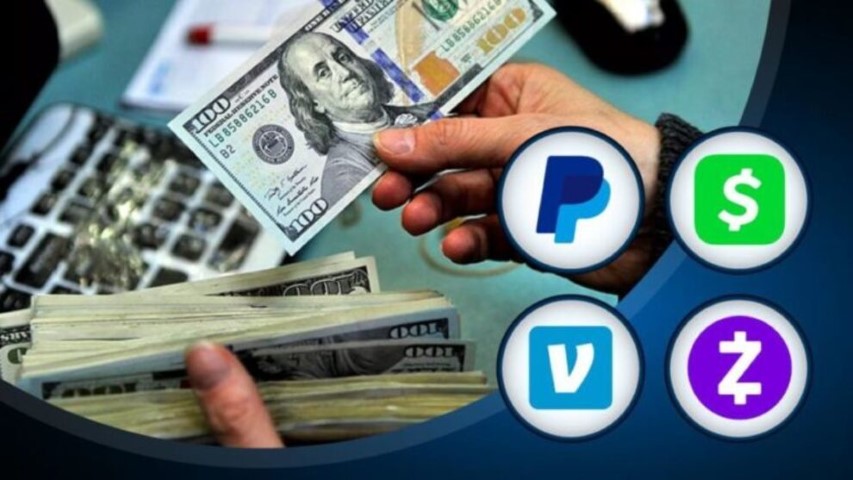No doubt utilizing mobile banking when traveling saves time and effort when dealing with financial problems. Members of Generation Z and Millennials in the United States utilize them as their primary means of payment, according to a Chase study titled “Digital Banking Attitudes.” With Gen X and Boomers being less open to mobile banking applications, Millennials use them at a rate of 86.5 percent, while Boomers use them at a rate of 69.5 percent.
Currency apps are mobile payment solutions that allow money transfers from one party to another without the need for cash. Let me clarify what cash apps are to those who have never heard of them before. Venmo, PayPal, Zelle, Google Pay, Amazon Pay, Apple Pay, and the Cash App, which is called for its principal function, are some of the most well-known examples of such programs. The usage of these is advantageous in a variety of ways, including the fact that it allows for quick payments, low expenses, and cashback incentives.
As a consequence of these and other advantages associated with the use of cash apps, several businesses have chosen to accept them as a viable method of payment. Here are several examples of this:
Companies that provide streaming services
Hulu announced in 2018 that it will be the first streaming service to accept Venmo payments. Customers using Android smartphones may now use Google Pay to pay for Netflix. Cash App users may configure the service to serve as a debit card on the platform, which also accepts PayPal and Venmo payments. Given that the global streaming market is expected to grow at a rate of 21.3 percent through 2030, it is realistic to expect that the great majority of providers supplying video content will soon support cash app transactions.
General Stores
The amount of contactless payments done worldwide has increased in the last two years as a result of the COVID-19 outbreak. As a result, merchants such as Walmart and Kohl’s began accepting payments using mobile transaction services linked to credit cards. The same may be said for well-known online retail sites such as Amazon and Wayfair. Customers can pay using their mobile app at some general retailers, but in most cases, they must have a card that acts similarly to a debit card and is issued by their selected provider.
Original Retail Stores of the Brand
Following in the footsteps of the previous subsection, a slew of well-known shops, including Dick’s Sporting Goods, Under Armour, Adidas, North Face, Nike, and Foot Locker, have embraced the cash app trend. As a result, utilizing a cash app service (or its card) to pay for a pair of sports shoes or a comfy jacket is now an option at the majority of top-brand businesses.
Food-delivery services to your door
In 2015, the cost of meal delivery to American households was $8.7 billion. After another five years, this figure had risen to more than $26 billion. It is currently expected that by 2029, this sum would have risen to $320 billion. A multitude of businesses, including GrubHub, GoldBelly, DoorDash, and UberEats, take cash applications. However, just a few persons were admitted. Venmo is one of the payment options allowed by UberEats customers, although Cash App is not.
Automobile Insurance
Although Esurance and Geico are two of the most well-known vehicle insurance companies in the United States, it is important to note that they are not the only companies that offer cash applications as a method for obtaining auto insurance in the United States. Geico, which has a market share of 14% and offers annual premiums that average $1,917, enables its customer base to pay for insurance bills in a variety of flexible ways, including the utilization of Venmo, Apple Pay, and Zelle. Geico’s market share is 14%, and its annual premiums average $1,917. Geico holds a market share equivalent to 14 percent.
Stock Exchanges
2019 saw the introduction of stock trading features to Block’s Cash App, which was formerly known as Square. Other applications that are quite comparable to Block’s Cash App quickly followed suit. Cash applications were the first to join the trend of remote stock market trading, which has become increasingly popular in recent years.
Dining establishments
It is vital to recall that Starbucks was the very first food and beverage business to accept mobile payments. At this time, a lot of different chains have followed Starbucks’ lead and begun to vary the methods in which they accept payments. McDonald’s, Wendy’s, Domino’s, KFC, and Katz Deli are just a few examples of well-known restaurants that accept cash app cards.
Platforms for Online Gambling
Online gambling, one of the fastest-growing industries, is expected to generate $158 billion in annual revenue by 2028. It includes a wide range of activities such as casino gaming, sports betting, lotteries, poker, and eSports wagering, among others. Over the last two years, several offshore gaming sites that accept US players have modified their cashier tabs to include Cash App. In general, online casinos and sportsbooks provide a range of ways for players to deposit and withdraw funds. Bank transfers, e-wallets, cryptocurrencies, and prepaid solutions are among them. Furthermore, the number of gaming sites that take cash app payments is continuously expanding.
Pharmacy
Medication may be purchased with a variety of cash applications such as Venmo, Google Pay, PayPal, and others. Customers may use a QR code to pay for merchandise at any of CVS Pharmacy’s 8,200 retail locations in North America. CVS Pharmacy made this statement precisely two years ago. The startup claimed to be the first national pharmacy shop to accept touch-free payments via Venmo and PayPal.
Telehealth services are available in eight different countries
HIPAA, or the Health Insurance Portability and Accountability Act of 1996, was enacted in 1996. The federal government enacted that section of the statute to protect sensitive patient information. Although services such as Cash App, Venmo, and PayPal do not adhere to HIPAA requirements, many lawyers argue that they are unnecessary. As a result, it should come as no surprise that many psychiatrists operating in the post-2020 age have begun charging their patients for Zoom sessions using cash apps.



